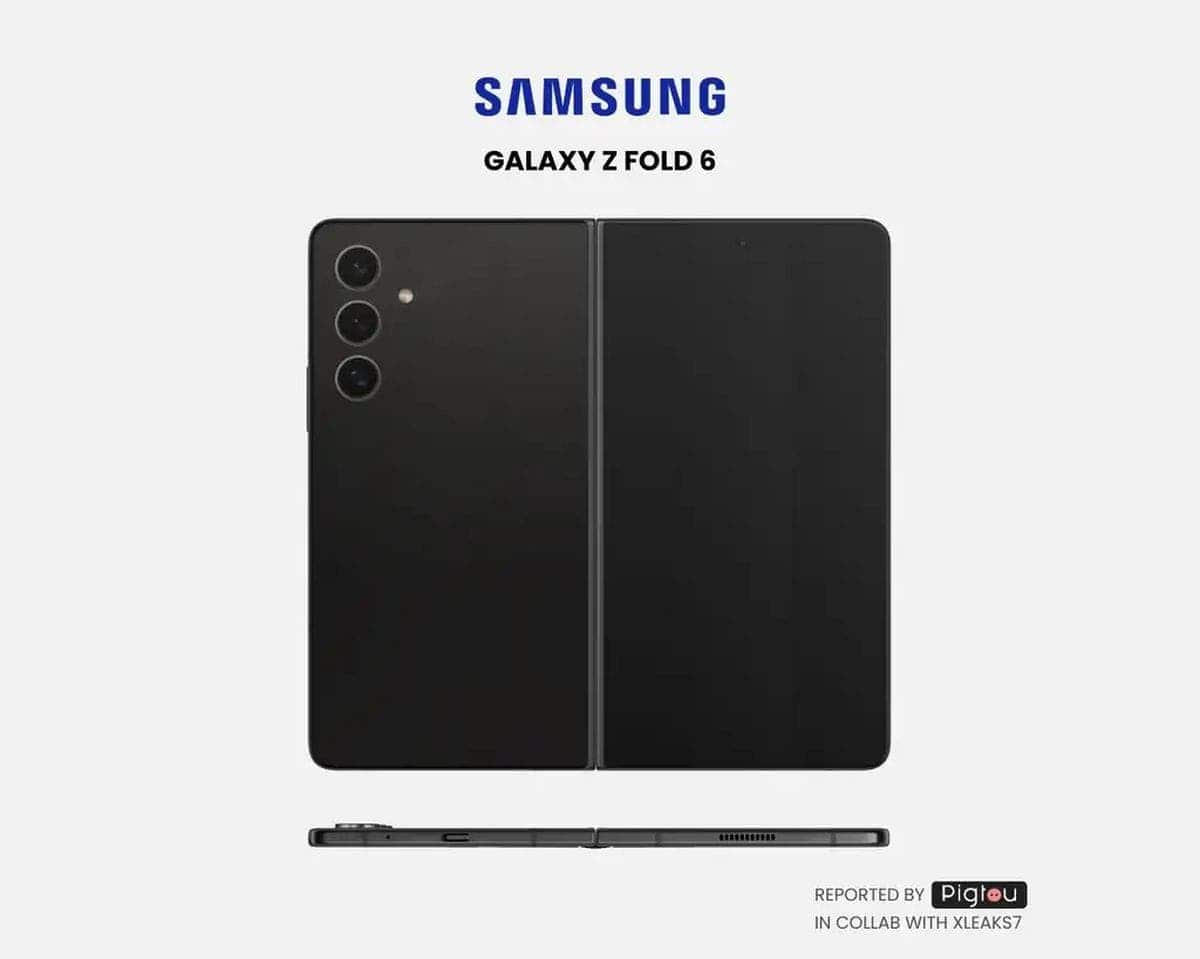Samsung is gearing up to revolutionize its Galaxy Z series with the upcoming release of the Samsung Galaxy Z Fold6, which is rumoured to feature a titanium build material. This move is expected to set the Fold6 apart from its counterparts, particularly the Galaxy Z Fold6 FE, which is speculated to be crafted from aluminium. The decision to use titanium in the construction of the Galaxy Z Fold6 aligns with Samsung’s strategy to elevate the premium feel and durability of its flagship foldable phones. Popular tech blogger, @Tech_Reve revealed this in a tweet and stated that this could be one of the differences between the Z Fold6 and the Z Fold6 FE.

Titanium Build Setting a New Standard
The choice of titanium for the Galaxy Z Fold6 marks a significant departure from conventional materials used in smartphone manufacturing. Titanium is renowned for its exceptional strength and lightweight properties, making it an ideal material for enhancing the durability and overall quality of the device. By opting for titanium, Samsung is not only aiming to create a visually striking device but also to ensure that users experience a premium feel and robustness that surpasses previous models in the Galaxy Z series.
Release Schedule and Market Impact
Samsung’s strategic release plan for the Galaxy Z Fold6 and Galaxy Z Flip6 in July, followed by the Galaxy Z Fold6 FE in September-October, underscores the brand’s commitment to offering a diverse range of foldable phones to cater to varying consumer preferences. The limited shipment volume estimated for the Fold6 FE, ranging from 200,000 to 300,000 units, hints at a more exclusive and sought-after device within the lineup. Additionally, the projected price point of $800 for the Fold6 FE positions it as an attractive option for consumers seeking a blend of affordability and cutting-edge technology.

Pros and Cons of using Titanium
Titanium is a material that offers various advantages and benefits, making it a desirable choice for certain applications, including smartphone manufacturing. Here are the pros and potential drawbacks of using titanium:
Advantages of Titanium
1. Exceptional Strength: Titanium has exceptional strength, making it highly durable and resistant to damage from impacts and drops.
2. Lightweight: Despite its strength, titanium is lightweight, which can reduce the overall weight of devices like smartphones without compromising on durability.
3. Corrosion Resistance: Titanium is highly corrosion-resistant, ensuring longevity and protection against environmental factors like sweat and moisture.
4. Improved Fingerprint Resistance: The surface of titanium can better resist the adhesion of fingerprints and stains, keeping devices cleaner.
5. Biocompatibility: Titanium is biocompatible, making it suitable for use in medical devices. It also reduces the risk of allergic reactions in users.
Potential Drawbacks of Titanium
1. Higher Cost: Titanium is more expensive than other common metals like aluminum, which can increase production costs and ultimately the price of products using this material.
2. Complex Processing: Working with titanium can be more challenging due to its hardness, which may require specialized equipment and processes, adding complexity to manufacturing.
3. Availability: While titanium offers unique benefits, its availability and production will not be as good as other materials like aluminum or stainless steel. This is because titanium is more scarce than aluminium or steel.
Conclusion
In conclusion, the Samsung Galaxy Z Fold6’s potential titanium build material signifies a bold step towards innovation and excellence in the realm of folding mobile phones. With the wait for its release and the promise of a premium user experience, Samsung will redefine the standards of luxury and performance in the mobile device market. Also, as tech nerds eagerly await the launch of the Galaxy Z Fold6, the industry is abuzz with anticipation for the next evolution in folding phone technology.





